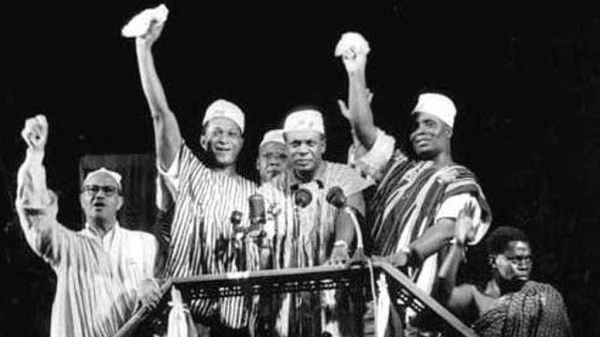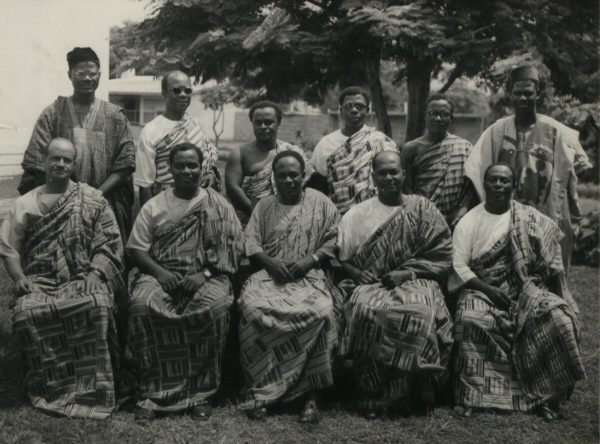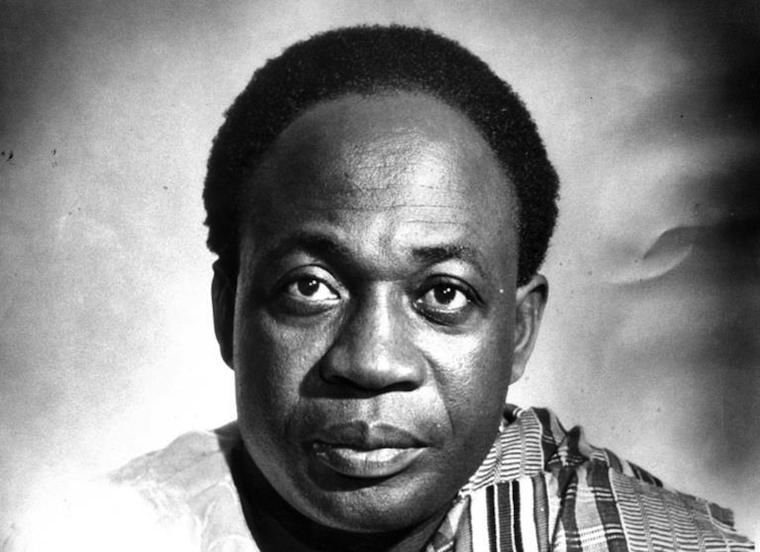Ghana Month: Dr. Kwame Nkrumah’s life from jail to presidency
As the month of March falls within Ghana’s month of independence from colonial rule, it is also known as Ghana Month, a time to celebrate Ghana’s culture and other historical occurrences that have given rise to the country.
Primary goals of the campaign are to promote and celebrate the nation’s rich cultural legacy and indigenous goods and services.
In honour of this year’s celebration, let’s pay attention to the contributions made by each of the “Big Six,” whose combined efforts resulted in the declaration of independence from colonial rule on March 6, 1957.
Among The Big 6 are:
▪️Kwame Nkrumah
▪️Ako Adjei
▪️Edward Akufo-Addo
▪️Joseph Boakye Danquah
▪️Emmanuel Obetsebi Lamptey
▪️William Ofori Atta

Brief Profile of Dr. Kwame Nkrumah.
Prominent Ghanaian statesman, nationalist leader, and pan-Africanist Dr. Kwame Nkrumah (1909–1972) was instrumental in the continent’s liberation and founding of the Republic of Ghana. Nkrumah was born in September 1909 in Nkroful, Gold Coast (now Ghana). His life story illustrates his steadfast dedication to the principles of African unification, independence, and self-determination.
Early life and education:
Nkrumah came from a lowly background. His parents were retail traders and goldsmiths.
His early education at a Half Assini Roman Catholic elementary school set the stage for a lifetime interest in learning and intellectual endeavours.
Following his graduation in 1930 from Achimota College, Nkrumah began working as a teacher, first in Elmina and Axim and then at a seminary.
Political awakening:
Nkrumah made the decision to continue his education in the United States due to his growing interest in politics.
He enrolled at Pennsylvania’s Lincoln University in 1935 and studied the writings of Karl Marx and Vladimir Lenin, delving into the literature of socialism.
His devotion to nationalist ideals was further strengthened by his exposure to the ideas of Marcus Garvey, a well-known Black American leader of the 1920s.
Political activism and Pan-African leadership:
Nkrumah actively participated in political activity during his stay in the United States. After organising the African Students’ Organisation of the United States and Canada, he was elected as its president.
His commitment to the larger cause of African liberation was demonstrated in 1945 when he organised the 5th Pan-African Congress in Manchester after returning to England.
Leadership in Ghana’s independence movement:
After twelve years away, Nkrumah returned to the Gold Coast in 1947 and took the lead in the campaign for independence.
In 1949, he started the Convention Peoples’ Party (CPP) after first working as the general secretary of the United Gold Coast Convention (UGCC).
Widespread support resulted from the CPP’s pledge to immediate self-government striking a chord with the public.
First Prime Minister and President of Ghana:
Nkrumah served as Ghana’s first prime minister when the country gained independence from British rule in 1957 as a result of a string of political demonstrations and actions.
He led an effective campaign in 1960 to make Ghana a republic, and a new constitution gave him broad legislative and executive authority when he took office as president.

First cabinet of Dr. Kwame Nkrumah
Challenges and economic policies:
Nkrumah’s development of an increasingly authoritarian leadership style coincided with the implementation of large-scale, frequently expensive development projects.
Economic challenges, a rising foreign debt, and the abandonment of the Second Development Plan in 1961 led to labor unrest and a general strike.
One-party state and ouster:
In 1964, Ghana officially became a one-party state with Nkrumah as its life president. However, internal strife, corruption, and economic woes continued to escalate.
During Nkrumah’s absence in Beijing in 1966, a military coup seized power in Ghana, marking the end of his political reign.
Legacy:
Kwame Nkrumah’s legacy endures as a symbol of African nationalism, anti-colonialism, and pan-Africanism.
Despite the challenges and controversies of his political career, he remains an influential figure in Ghanaian and African history.
Generations of leaders dedicated to the advancement and independence of the continent are still motivated by his vision of an independent and united Africa.
Credit// Pulse Ghana

